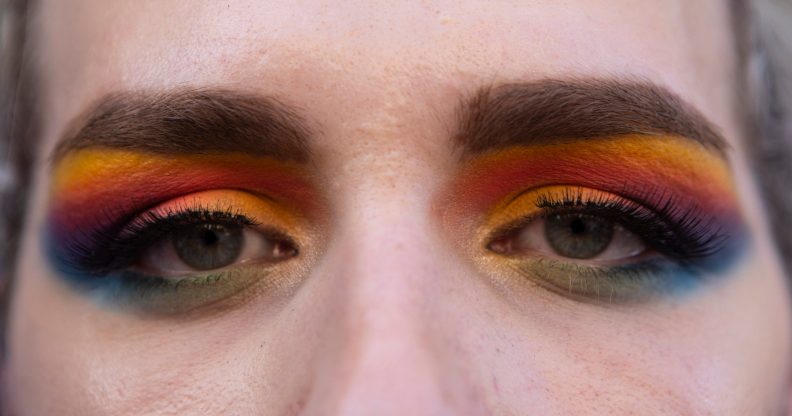Vulnerable LGBT+ teens feel less supported by their parents than they would have 20 years ago, alarming study finds

(Emanuele Cremaschi/Getty Images)
Parents of LGBT+ teens are less accepting of their children than 20 years ago, an alarming study has found.
Research published in the Journal of Child and Family Studies found that parental behaviours toward LGBT+ youth have steadily worsened for nearly two decades, a result which “surprised” the report’s top researchers considering the overall rise of acceptance towards queer people in recent years.
“This increasing societal acceptance really doesn’t filter down to youth who are still in school, who are still being discriminated against or victimised by their classmates,” the report’s co-author Hilary Rose, an associate professor in the Department of Applied Human Sciences at Concordia, in Canada, said.
“And it doesn’t trickle down to parent-child relations. Frankly, we were surprised by that.”
LGB young people say they feel ‘disconnected’ from their parents.
The study found that parents of LBG teens in particular were less supportive of their children than those from 20 years ago, compared to parents of heterosexual teens, whose support has increased.
Researchers looked at data from the McCreary Centre Society, a non-profit youth health organisation which conducts anonymous surveys of high school students in British Columbia every five years.
The authors of the study wrote that while “heterosexual boys and girls reported more family connectedness and mother/father support across all four survey years in general… there were many instances where bisexual, gay and lesbian youth reported lower levels of family connectedness and mother/father support”.
Co-author Rose suggested that because social norms surrounding sexual minorities have eased, youths are finding it easier to come out at younger ages – sometimes even before young people go through puberty.
Explaining her findings further, Rose suggested parents’ decreasing acceptance might be a symptom of a wider backlash to social norms easing around sexual minorities. In recent political debates, Rose said, marriage equality and LGBT+ issues have been discussed, thereby exposing LGBT+ issues in households.
This may have led there to further intolerance at home.
Another impact of less support at home for queer children, Rose warned, was the loss of a support network for bullied LGBT+ teens.
“Parental support is a huge protective factor for sexual minority youth,” Rose said. “It helps them deal with victimisation at school, for instance.
“But if they cannot even count on parental support, you have to wonder, what are these kids going to do?”
The mental health state of LGBT+ teens has decreased in lockdown.
Researchers voiced their concerns at the impact of lockdown measures during the coronavirus pandemic on queer young people.
LGBT+ youth already experience high rates of mental ill-health. Yet, in lockdown, it seems that these high rates have increased.
Further research from the University of British Columbia’s Stigma and Resilience Among Vulnerable Youth Centre found that 25 per cent reported feeling a sense of fear a home amid the throes of lockdown, while a third of trans and non-binary youth have felt unsafe at school.
Lockdown measures to curtail the rampaging virus have resulted in many queer people feeling at risk, unsafe and exposed to danger at home, researchers stressed.
A separate study of LGBT+ people’s experiences in lockdown was conducted by University College London and Sussex University. Results have shown that 69 per cent of respondents suffered depressive symptoms and approximately one-in-six respondents reported some form of discrimination since the start of the pandemic because they were LGBT+.
Even before the pandemic, research showed that LGBT+ youth ages 18 to 25 were more than four times as likely to report planning and attempting suicide in the past year compared to heterosexual, cisgender peers.
The Albert Kennedy Trust (AKT), a UK charity that cares for the LGBT+ homeless youth, warned young people to “think hard” before coming out at this time. This advice came after LGBT+ helplines saw a surge in calls from individuals who are self-isolating or stuck at home, with abusive partners and family members.

